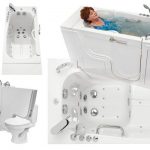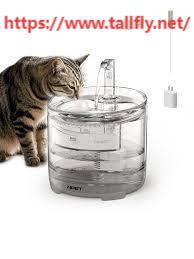Oral Surgeons Near Me: How to Find the Right Professional for Your Oral Health Needs
If you’re dealing with issues such as impacted wisdom teeth, jaw misalignment, or other oral health concerns that require surgery, you may be searching for oral surgeons near me. Oral surgeons specialize in surgical procedures that treat a wide range of dental and facial conditions. Whether it’s a routine procedure or something more complex, finding the right oral surgeon can make a significant difference in your recovery and overall experience. In this guide, we will help you understand what oral surgeons do, how to choose the right one, and what to expect when seeking oral surgeons near me.
What Do Oral Surgeons Do?
Oral surgeons are dental specialists who perform surgeries that address issues in the mouth, jaw, and face. They are trained to handle more complex procedures beyond what a general dentist can manage. Some common procedures performed by oral surgeons include:
1. Wisdom Teeth Removal
One of the most common reasons patients search for oral surgeons near me is for wisdom teeth extraction. These third molars often need to be removed due to impaction, infection, or misalignment. Oral surgeons have the expertise to remove wisdom teeth safely, whether they’re impacted or growing in normally.
2. Dental Implants
For patients who need to replace missing teeth, oral surgeons near me can perform dental implant surgeries. This involves placing a titanium post into the jawbone, which serves as a foundation for artificial teeth, providing a long-term solution for tooth loss.
3. Jaw Surgery
Oral surgeons often treat conditions related to jaw misalignment, such as malocclusion, or difficulty chewing and speaking. Oral surgeons near me can perform corrective jaw surgery, which can improve function and facial appearance.
4. Facial Trauma Treatment
In cases of facial injuries or accidents, oral surgeons near me can treat fractures and damage to the bones in the face, including the jaw, cheekbones, and teeth. They may also be involved in reconstructive surgery to repair facial structures.
5. Cleft Lip and Palate Surgery
For children born with a cleft lip or palate, oral surgeons perform reconstructive surgeries to repair the opening and improve both the function and appearance of the face and mouth.
How to Find the Best Oral Surgeons Near Me
When searching for oral surgeons near me, it’s essential to consider various factors to ensure you receive the best possible care. Here are some key steps to finding the right oral surgeon for your needs:
1. Research and Recommendations
Start your search by asking for recommendations from your general dentist, friends, family, or online reviews. A referral from your primary dentist is often a good starting point because they are familiar with your dental needs and can recommend a trusted oral surgeon. Additionally, check reviews online from trusted sources to get an idea of the surgeon’s reputation and patient satisfaction.
2. Verify Qualifications and Experience
Ensure the oral surgeons near me are board-certified and have specialized training. Board certification ensures that the surgeon has completed the required education and training to perform oral surgeries safely and effectively. You should also check how many years of experience the surgeon has in performing the specific procedure you need.
3. Consultation and Comfort Level
It’s important to feel comfortable and confident in your oral surgeon’s abilities. Schedule a consultation with potential oral surgeons near me to discuss your concerns, ask questions, and evaluate their approach to treatment. Pay attention to how they explain the procedure, the options available, and how they address your fears or concerns.
4. Check Technology and Facilities
Look for oral surgeons near me who use the latest technology to ensure the best outcomes for their patients. Modern imaging tools, such as 3D X-rays, and advanced surgical techniques can make a significant difference in the precision and safety of the procedure.
5. Consider Insurance and Payment Options
Before scheduling your surgery, check with the oral surgeons near me to see if they accept your dental insurance or offer payment plans. This ensures that the cost of the procedure fits your budget, and you can plan for any out-of-pocket expenses.
What to Expect During a Consultation with Oral Surgeons Near Me
A consultation with an oral surgeon near me is an essential part of preparing for any oral surgery. Here’s what you can expect during your visit:
1. Initial Examination and Assessment
The surgeon will begin by reviewing your medical and dental history, including any relevant issues or previous treatments. They may also conduct a physical exam of your mouth, jaw, and face, and take X-rays or 3D images to evaluate the area that requires surgery.
2. Discuss Treatment Options
After assessing your condition, the oral surgeon will discuss the various treatment options available. For example, if you need wisdom teeth removal, they will explain the surgical process and recovery time. If you’re considering dental implants, the surgeon will outline the steps involved in the procedure, including any preparatory work like bone grafting.
3. Anesthesia and Sedation Plans
Oral surgery often requires anesthesia to ensure you’re comfortable throughout the procedure. Your surgeon will explain the anesthesia options available, including local anesthesia, sedation, or general anesthesia, depending on the complexity of the surgery and your comfort level.
4. Costs and Financial Information
Your consultation will likely include a discussion about the costs associated with the surgery. The oral surgeons near me should provide an estimate of the procedure’s cost and go over any insurance coverage or payment options available to you.
Aftercare and Recovery Following Oral Surgery
After your oral surgery, it’s important to follow your oral surgeon’s aftercare instructions to ensure proper healing and minimize complications. Here are some common aftercare tips you may receive from oral surgeons near me
1. Managing Pain and Swelling
It’s normal to experience some pain, swelling, or bruising after oral surgery. Your surgeon will likely prescribe pain medication and recommend ice packs to help manage these symptoms. Be sure to follow their instructions for taking medication and applying ice to reduce discomfort.
2. Dietary Restrictions
In the days following surgery, you may need to stick to a soft food diet to avoid irritating the surgical site. Avoid hot, spicy, or hard foods, and be careful when drinking liquids to avoid damaging the healing tissues.
3. Oral Hygiene Tips
Your oral surgeon will advise you on how to care for your mouth during the recovery period. This may include gentle rinsing with warm saltwater to keep the area clean and prevent infection. Avoid brushing the surgical site until the area has healed sufficiently.
4. Follow-Up Appointments
Your surgeon will schedule follow-up appointments to check on your healing progress and address any concerns you may have. It’s important to attend these appointments to ensure proper recovery and catch any potential issues early.
Conclusion
Finding the right oral surgeons near me is essential to ensuring that you receive high-quality care and have a successful surgery experience. By doing your research, verifying qualifications, and having a consultation with potential surgeons, you can make an informed decision about your oral health care. With the right professional and proper aftercare, you can enjoy improved oral health and a smoother recovery following your oral surgery.


































































